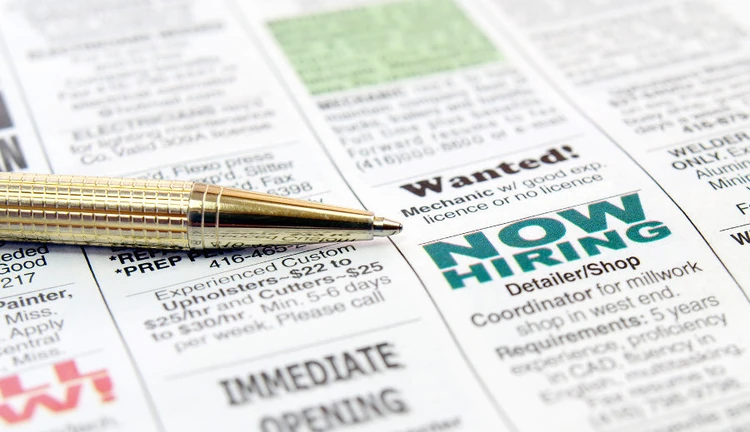If you're looking for work in this economy you know you must be careful, because there exist plenty of scammers, thieves and con artists using fake job offers or help-wanted postings as bait to hook new victims.
You should never trust any new “job” where your boss expects you to send money to him, or otherwise shell out any of your own money before you can expect to get paid – but you must also beware of any job where you get a check before actually doing any work to earn it.
Two common types of job scams nowadays are the “advance-fee” or “check-cashing” scam, where the scammers' goal is to steal money from you; and various money-laundering scams, where you unwittingly help the thief steal money from someone else — and might actually face criminal charges as a result.
Sounded perfect
This week we heard from a reader named Suzanne, who lives in Hawaii and is looking for part-time housecleaning work. She answered an help-wanted ad for a job which she thought sounded perfect – until her first payment set off her personal scam alarms:
Hi. I'm so glad I read the story you wrote. Last year I responded to a post on Craigslist for a job cleaning a house prior to a family's moving to Hawaii for the husband's new job, and as their maid 2-3x week. If I agreed to [the job] terms, I was to provide my full name and address so his accountant could send me a check prior to cleaning the house, so I could purchase products to clean it after I viewed it with the realtor. About a day and half later I received a check for almost $3,000 from some solar water heating company on the mainland .... It seemed very odd and I chose not to do anything with the check. Later the same day the person I had been communicating with through emails wanted to know if I had received my check in the mail. I then went back to the Craigslist post and found it to be "flagged". To be absolutely sure I asked the check cashing place I use to cash my checks to verify the check. They called the "bank" the check was written on and her call went to a voicemail. It turned out to be fraudulent, as I assumed initially. My question is: how would they make money from me?
ALOHA AND GOD BLESS, SUZANNE
Since that $3,000 check turned out to be fraudulent, with no money to back it up (nor even a genuine bank behind it), it's a safe bet to say that Craigslist “job offer” Suzanne responded to was actually bait for an advance-fee check scam.
“Check scam” is a wide-ranging label referring to any type of scam that first requires the victim to mistake a fake check for a real one, or a bad check for a good one. The oldest, simplest form of check scam is to buy something and pay with a bad check, thus defrauding the seller of the value of whatever the check scammer bought.
"Direct sales"
In today's economy, the most common victims of that scam tend to be small-business owners, or “direct sales representatives” selling the likes of Avon or Mary Kay products from their homes — in other words, the people who are most likely to accept checks from strangers.
An advance fee scam is a check scam variant where the scammer sends you a bad check and then asks you to advance him some of the money you think you'll eventually get. Of course, in such instances the scammer's goal is to convince you to advance him the money before you realize the check is no good.
If you sell Avon, for example, the scammer might place a large order with you, send a check for payment, and tell you he “accidentally” wrote the check for too much money... so, hey, why don't you just deposit that whole check in your account, then withdraw the extra money and wire it back to me? (And by the time you discover my check's no good, I'll be long gone and your money will be too, bwa ha ha!)
When that Craigslist scammer asked Suzanne if she'd received his check, his hope was that Suzanne would say yes without harboring any suspicions. Then the scammer would point out – quite reasonably – that $3,000 is far more money than one person requires to buy housecleaning supplies. Whoops! He “accidentally” sent Suzanne a check for too much money – but, hey, how about she just send him a couple hundred dollars and then keep the rest of the balance, for her troubles?
For any legitimate, non-scammy job, remember that money only ever flows in one direction: from boss to worker, from employer to employee. If you're expected to reverse that flow and send your money to someone else, it's guaranteed to be some type of scam.
